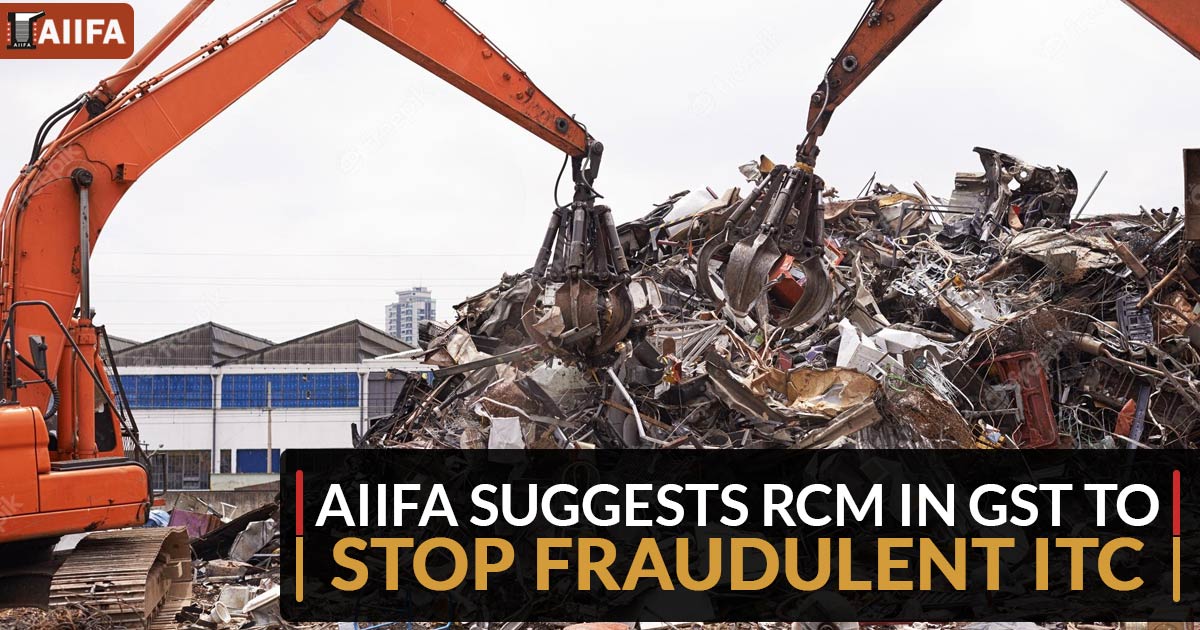
The scrap steel sector, which obtains its raw materials mostly from unorganized scrap dealers, has requested that the GST structure be rationalized through the use of a “reverse charge mechanism,” in which manufacturers would be responsible for paying taxes.
The GST Council was encouraged on Thursday by the All India Induction Furnaces Association (AIIFA), a group of scrap steel producers, to take into account their requests for bringing the steel scrap recycling sector under a reverse charge system comparable to the transport services.
The supplier of goods and services is normally required to pay tax under the Goods and Services Tax (GST) system. A reverse charge indicates that the recipient of the goods or services bears the tax burden.
According to Sudhir Goyal, a member of the All India Induction Furnaces Association, a considerable number of junk merchants have been found guilty of fraudulently claiming input tax credits. Manufacturers are eventually caught by tax officials.
Goyal said that the reverse charge method will assist in resolving the problem of scrap merchants making fictitious input tax credit claims. Steel scrap is subject to GST at a rate of 18%.
AIIFA’s GST council suggestions include exempting the supply of metal scrap from Tax when it is supplied by various scrap dealers, with the exception of the final leg of the chain as it is sold to manufacturers. In such instances, the GST would be collected from the producers via a reverse charge method, with the manufacturers paying the tax rather than the scrap merchants.
The association has also advocated for the implementation of distinct HSN (Harmonized System of Nomenclature) codes and listings for old and new scrap in the GST schedules.
When the original product is sold, old scrap is already taxed, so the reverse logistics process merely entails collecting and reusing. Yet, fresh scrap is produced by a specific economic activity. As a result, from a tax viewpoint, the two forms of scrap should not be regarded similarly, according to the organization.
According to Jyotiraditya Scindia, the Union Steel Minister, over 22% of the steel produced in India is recycled. The goal set forth by the government is to increase the proportion of recycled steel in the nation’s total steel production to 50%.
Important: Easy Guide to RCM (Reverse Charge Mechanism) Under GST with All Aspects
A lot of lawsuits are being filed as a result of the present GST structure, which also makes conducting business very challenging. According to Mohinder Gupta, president of the Induction Furnace Association Mandi Gobindgarh, Punjab, the reverse charge method would improve government income by preventing leaks and save us from needless litigation.
Several local scrap dealers bill scrap on bogus GST invoices, collecting GST from manufacturers along with the material bill but failing to deposit the monies with the government, according to Danish Goyal, AGM (Sales & Marketing) of Punjab-based Madhav KRG Ltd.
With the GST site, there isn’t yet a way to check the accuracy of bills or the Tax deposit. As a result, Goyal added, tax officials frequently conduct raids and send warnings to firms requesting information about the scrap they bought from scrap merchants.









